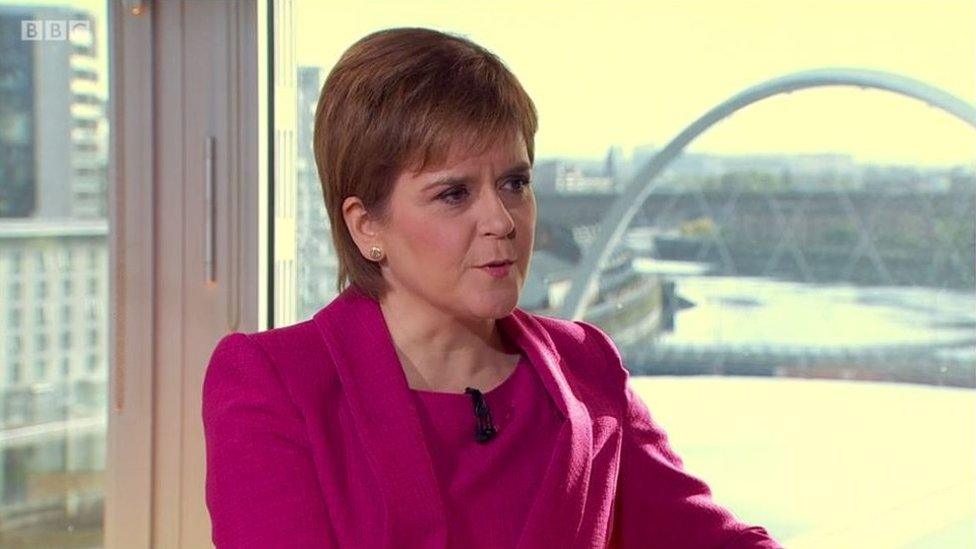Conference defaulting towards caution
- Published
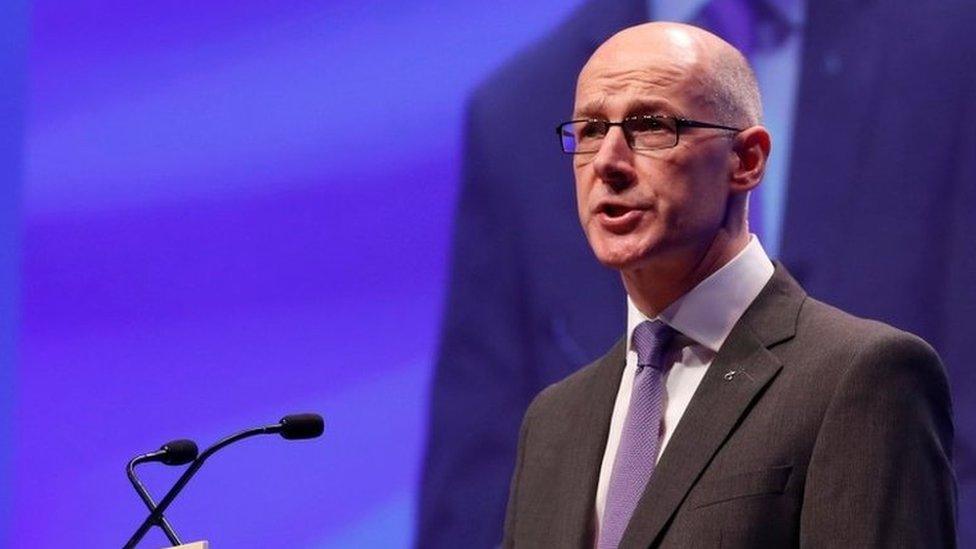
There has long been a dilemma confronting the SNP when preparing for a party conference. Do they yell Freedom and energise the faithful? Or do they ca' canny with the aim of attracting the unpersuaded?
In practice, of course, they customarily offer a bit of both. The issue, then, is emphasis, prioritisation. Thus far, the Glasgow conference defaults rather towards caution.
I think we may reasonably pay little heed to those who point out that there is no formal debate at the conference on independence.
It is not the case - not remotely the case - that the issue of Scotland's constitutional future is being ignored. Indeed, in his opening keynote speech, John Swinney drew huge applause and cheers when he urged delegates to "rededicate ourselves to independence."
Question of tactics
It is rather a question of tactics. The aim of independence remains intrinsic to every SNP policy and every strategic calculation.
Hence, it remains intrinsic to every debate here in Glasgow, starting with this afternoon's offering on Brexit.
However, it remains the case that there is - again strategically - more of an emphasis upon what we might call, for short, the day job.
I was discussing this topic with one senior minister who insisted that the day job had always been to the fore, certainly for ministers who saw desks piled high with red governmental boxes.
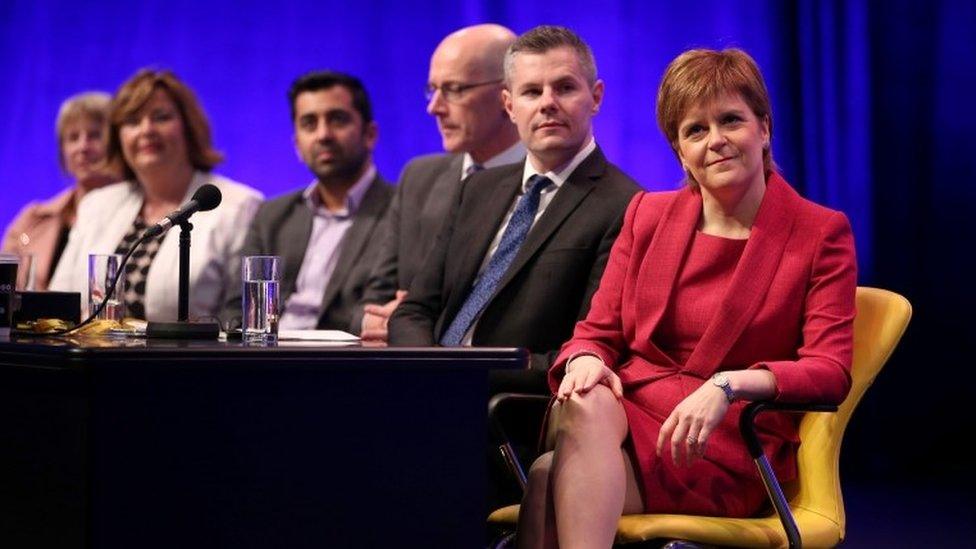
The issue, rather, was one of "band width" - or perhaps dog whistle pitch. The sounds, the content, projected most frequently to the electorate.
Yes, my interlocutor said, that band width had tended to feature independence and the constitution in recent years. For this conference, it would be more focused upon jobs, the economy, the health service, education and the rest.
To repeat, that does not mean that the SNP has shelved or abandoned the prospect of independence. Quite the reverse. Rather, it is a tactical repositioning.
To be clear, that is not remotely a new tactic. Alex Salmond won power in 2007 and then majority control in 2011.
Did he pick daily fights with London in order to prosecute the case of independence? Did he bring the business of devolved government to a halt, demanding concessions? Did he declare UDI?
None of the above. Rather, he sought to govern sensibly and, where possible, consensually - but, in any case, strictly within the limits of devolved power.
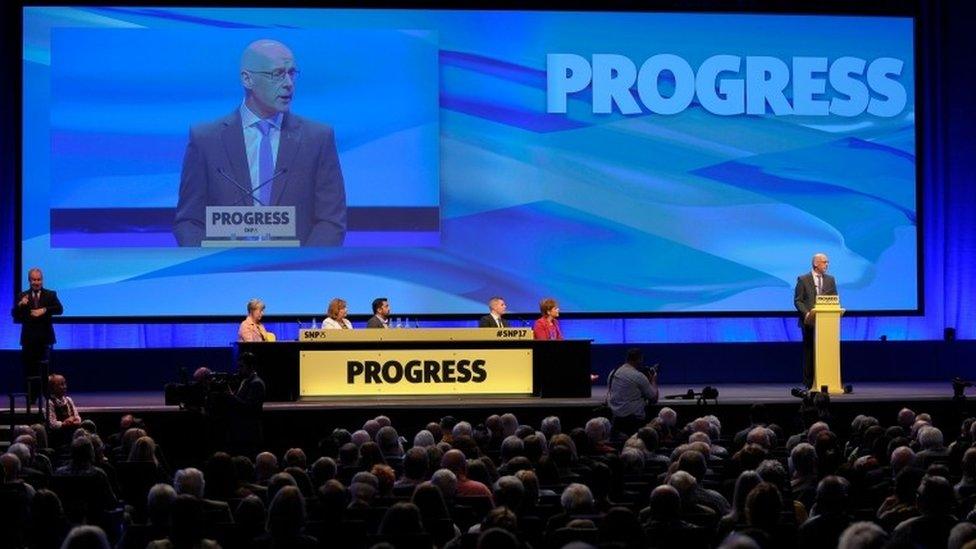
The aim? To be seen to be governing reasonably successfully within the current constraints - while simultaneously inviting the electorate to consider how much better things could be with the full powers of independence.
It was - and is - quintessential gradualism. Now, of course, at the same time, Mr Salmond vigorously pursued the wider objective of independence - resulting, ultimately, in a referendum in 2014.
But we should also note that, in the meantime, he continued to head a government which sought to focus upon the day job. His calculation was that the people of Scotland wanted Holyrood to work in their interests, not solely to be a platform for permanent protest and conflict.
Which brings us to today. Party leaders know that they need to regroup. They know that they fell back at the most recent UK general election. But they regard talk of crisis as ludicrous.
They make a number of points:
that the 2015 UK election followed the indy referendum and was exceptional
that the more recent UK election was overshadowed and thus influenced by new divisions caused by the EU plebiscite
that the SNP still contrived to win both elections, and the Holyrood contest
Rivals will say, and do say, that these comments represent defiance from a party on the slide. And, certainly, those losses at the most recent UK election were substantial and included big names.
The SNP leadership knows that only too well. It suspects that folk may be scunnered with contemporary politics, especially the focus upon the constitution. Hence, the endeavour to offer to work in tandem with the mundane concerns of the voters.
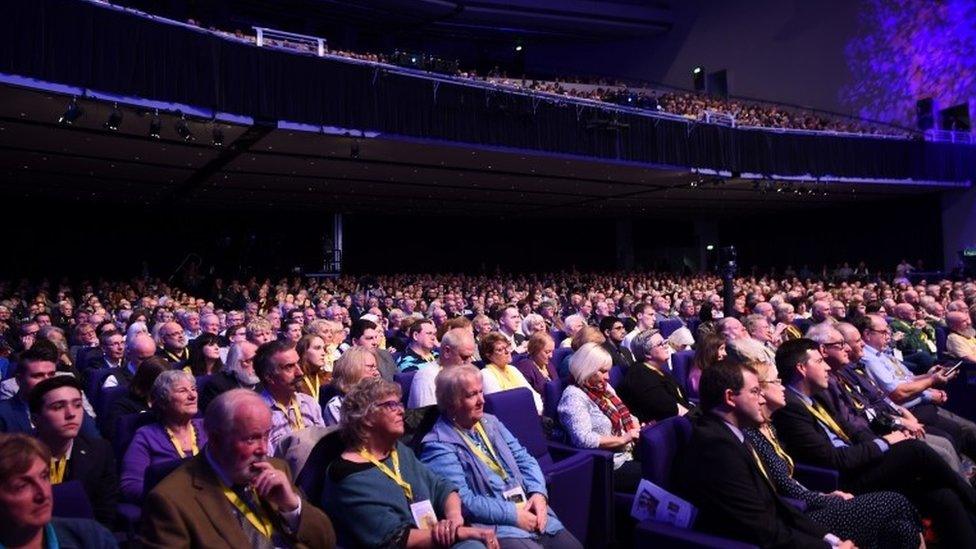
But that does not mean, to restate, that the objective of independence has been lost. They remain committed to pursuing such an objective via a further referendum - which, to be clear, would require agreement with the UK government and a transfer of temporary power, as in 2014.
Timing for this is not in SNP hands. Nicola Sturgeon knows that Brexit has left folk disquieted - that now may not be the time to add the further complexity of an independence referendum into the mix.
Hence her decision to defer the potential date for indyref2 until the shape of Brexit is more clearly understood. But, still, Mike Russell - the minister for mitigating Brexit - insisted Scotland would be offered a choice at some point. Just not now.
Friendly relations
There is a further, more fundamental, calculation. Popular will. For the umpteenth time, Nicola Sturgeon does not want to call a referendum. She wants to win one. Hence her caution.
And there is a cautious note too with regard to events in Barcelona. Many delegates here would instinctively cheer "visca Catulunya" - but many are also leery about seeming to draw any form of parallel between the Catalan situation and the position in Scotland.
For one, history in each case is very different. For another, the narrative offered by the SNP is one of a consensual reframing of the Union, of independence by popular Scottish will, with the ballot permitted by the UKG.
The aftermath, in the SNP view, would be Scotland maintaining friendly relations with her nearest neighbour.
Events in Catalunya are uncertain, to say the least, but for now it is difficult to apply such a consensual narrative to the images from Madrid and Barcelona. Hence the SNP caution, here at a cautious conference.
- Published8 October 2017
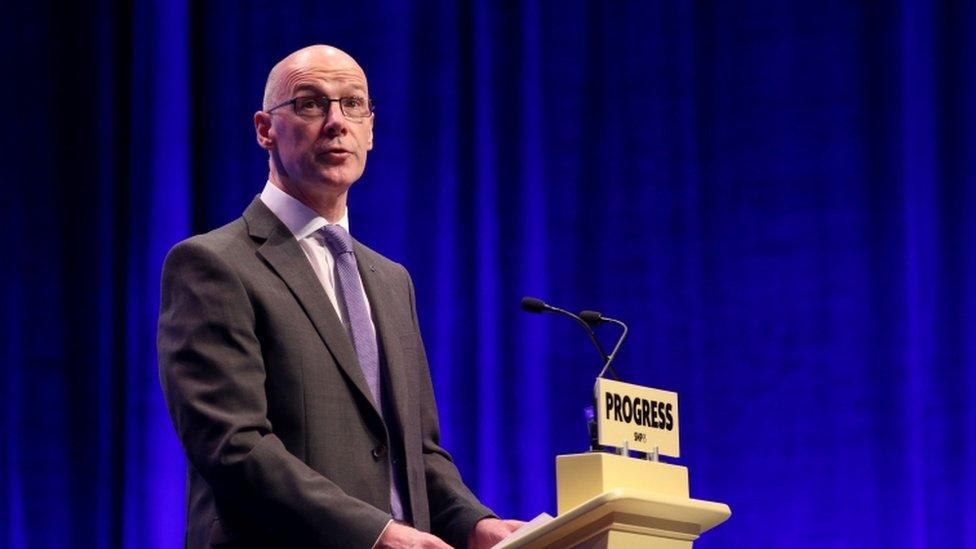
- Published8 October 2017
